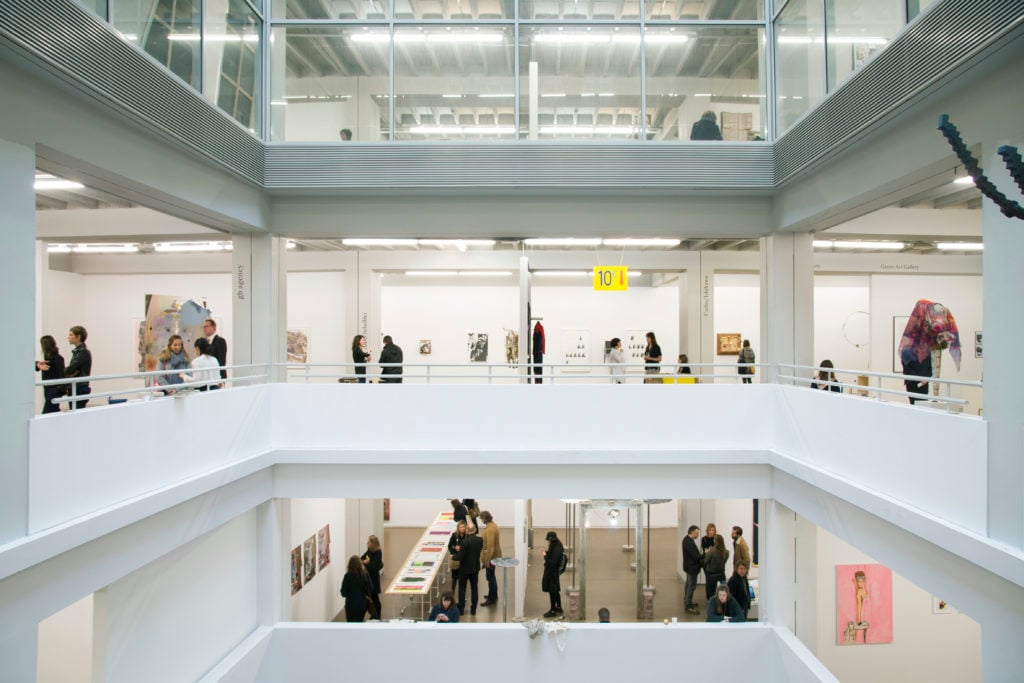Art Fairs
The Independent Art Fair Is Closing Down Its Brussels Edition, Citing a Weak Local Market and Cramped Calendar
The fair struggled with finding the right timing and venue.

The fair struggled with finding the right timing and venue.

Taylor Dafoe

In 2016, Independent brought the hip, aisle-less art fair model it had established in New York to Europe, launching Independent Brussels. Now, just four years and three editions later, the fair has decided to cancel its Brussels edition.
Elizabeth Dee, Independent’s co-founder and CEO, cited problems with location and timing as the driving factors behind the move, which was first reported by the Financial Times. After two years of holding the fair in April alongside Art Brussels, the Independent team rescheduled its most recent European edition to November, but Dee noted that the move put the fair in competition with events in China.
She also noted that New York’s market is far stronger than that of Brussels, and deserving of more attention. “Some 25 percent of the world’s collectors live in New York, and our team, our museum-caliber building, and my own professional transition means we’re now in a position to grow,” Dee told the FT. (She did not immediately respond to a request for further comment from artnet News.)
The Independent, which celebrated its 10th anniversary this year, was founded in 2009 as an alternative to the cramped, cookie-cutter expos that have fueled fair fatigue. Its first years were well-received within the industry, and the expansion to the Belgian capital in 2016 was, for many, further proof that the fair had successfully found a middle ground between the mall-like model and a more intimate gallery experience. The most recent Brussels edition was guest curated by Vincent Honoré, an independent curator with a background in performance art, who commissioned 16 new performances for the occasion.
Dee explained that Independent Brussels’s venue—three times the size of its space in New York’s Spring Studios—also played a part in the decision. The fair set up shop in the Vanderborght Building, a 1930s-era structure overseen by city officials, from whom, the director notes, it was “difficult to get clarity.” (For Dee, the struggle with building owners is a far too familiar story. After 17 years in business, she closed her eponymous gallery in 2018 when developers razed the Harlem building she occupied.)
Earlier this year, Dee penned an essay for artnet News in which she questioned the conventional, stale gallery models we’ve come to begrudgingly accept, wondering what evolutions the future might hold. “Do we still have an effective system for bringing new art forward?” she wrote. “At such a transformational time, it surprises me how little exposure has been given to gallery missions and practices to address this question.”